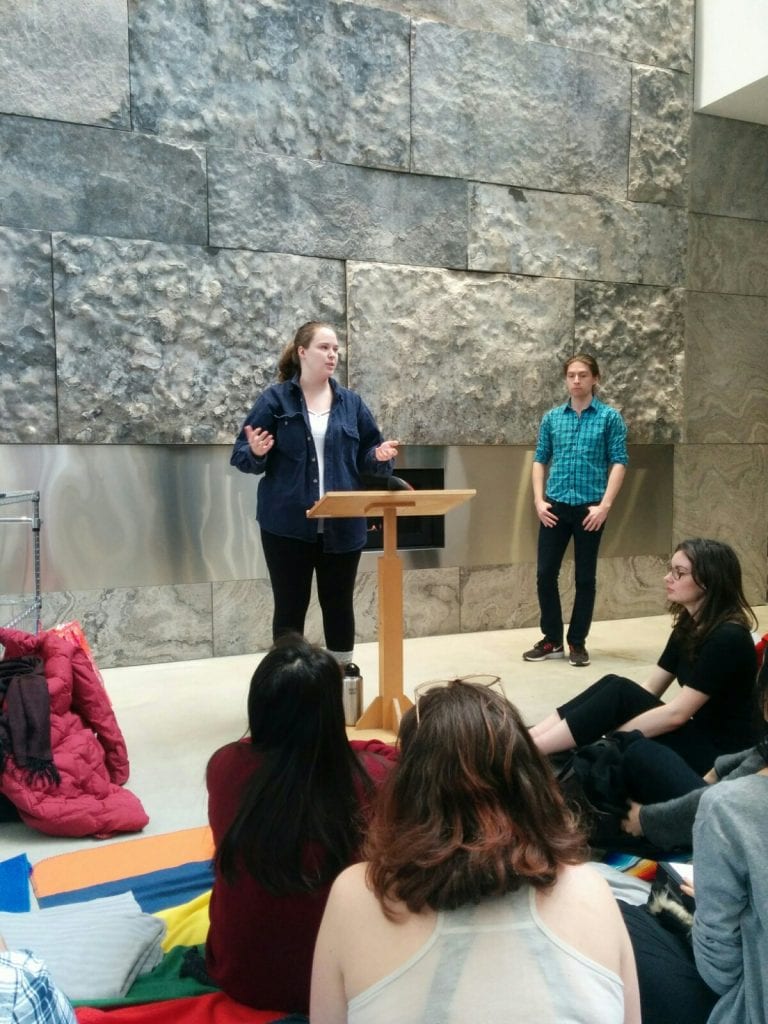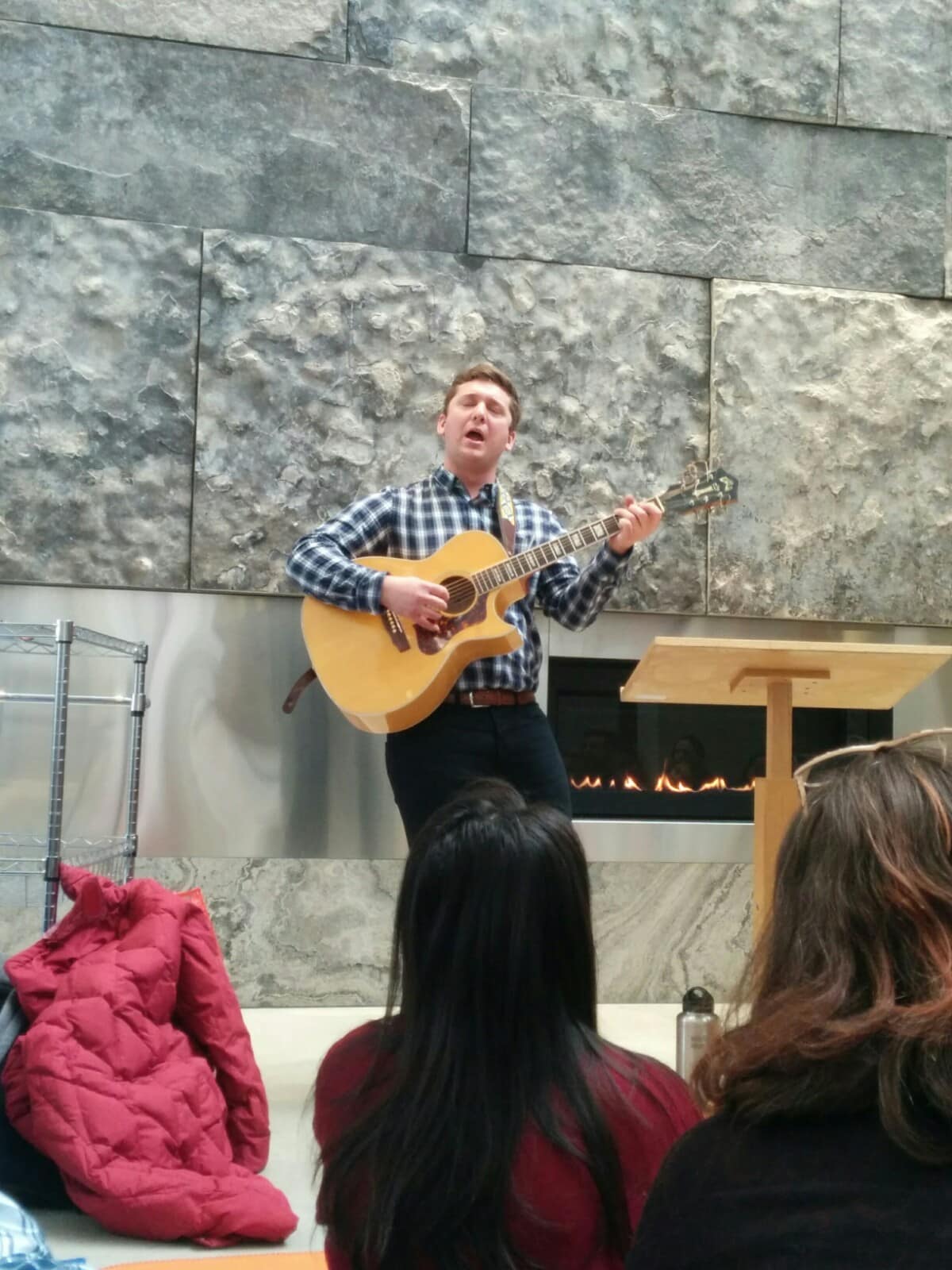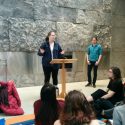Maud Rozee (3L)

On March 14, students walked out of their classrooms to attend a teach-in hosted by the Indigenous Law Students Association (ILSA) about the verdicts in the Colten Boushie and Tina Fontaine cases. Similar walkouts and teach-ins occurred at law schools across the country.
ILSA member Lesley Ann St. Amour (1L) began the teach-in by speaking to the assembled students and faculty about the discrimination Indigenous people face. “I don’t remember how many times I’ve been told I only got into McGill or U of T law school because I’m Indigenous,” St. Amour said. “These systems are the same systems at play [in Tina Fontaine’s death].” St. Amour emphasized the importance of law students engaging with Indigenous issues: “These issues are important no matter what type of law you practice. You will encounter Indigenous people whether you know it or not. You need to understand how these other systems interact with how they experience the justice system.”
St. Amour discussed the initiatives that Indigenous communities have taken to address the violence they face, including Drag the Red, an effort to find evidence of murdered and missing women in Winnipeg’s Red River, and Bear Clan Patrol, a crime-prevention initiative. The National Inquiry into Missing and Murdered Indigenous Women was also raised an example of the long overdue effort to bring awareness to the issues Indigenous people face.
Next, St. Amour covered issues with the legal system illustrated by the Colten Boushie case. On the topic of the jury selection, she emphasized that it isn’t just the legal system that needs to change—issues like child care, elder care, and transportation that affect access to justice cannot be siloed. She also noted that law enforcement considerations can be different in rural communities. In most cases, police can’t respond to calls immediately. Still, she said, she fears that the result in the Boushie case will mislead Canadians about what they’re allowed to do under circumstances like those in that case.
“What can settlor students and allies be doing?” St. Amour asked. “We don’t necessarily know. A lot of it you’re doing by just being here. Understanding whose land you’re on. That Indigenous people can provide their perspectives.”
Next, ILSA co-president Zachary Biech (2L) discussed the historical relationship between the RCMP and Indigenous communities on the prairies. He told the story of the trial of Plains Cree Chief Poundmaker, who was arrested for treason in the 1880s after a clash with a predecessor force to the RCMP sent by the Canadian government in the place of officials to renegotiate treaty terms. The trial in Regina was conducted without an interpreter, and jury deliberations were short. Poundmaker was sentenced to serve time at Stony Mountain Penitentiary, and died shortly after he was released.
Biech elaborated on the context of military conquest and forced control between law enforcement and Indigenous communities on the prairies—in his words, “Not a very pretty relationship to have.”

Conlin Delbaere-Sawchuk (1L) discussed the Louis Riel uprisings, focussing on the parallels between his trial for treason in front of a jury of six white men and the trial in the Colten Boushie case. Delbaere-Sawchuk sang and played “Chanson de Riel” on his guitar.
Finally, Professor Douglas Sanderson spoke briefly about the question of how non-Indigenous students can be good allies. He told an Ojibwe creation story with the message that we each hold within us the ability to identify truth and justice. “Find the cause within yourself,” he said. “Speak truth to power. Learn about us. We have one of the best libraries on the Eastern seaboard here at U of T. Learn about our technologies. Find truth and justice within yourself. Do the right thing.”






